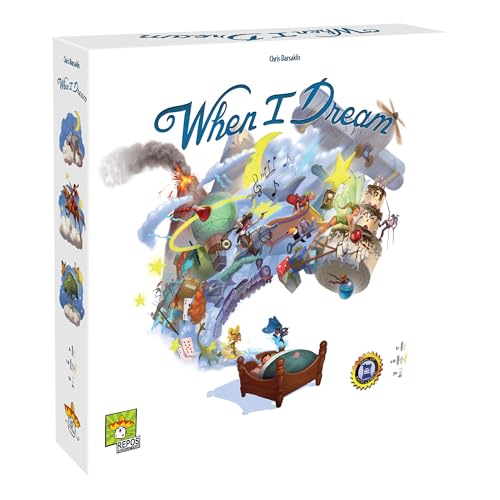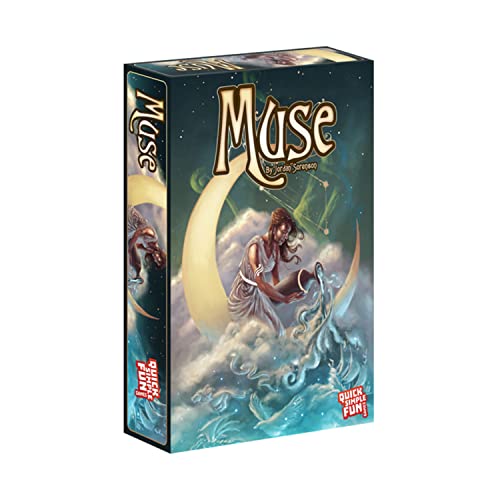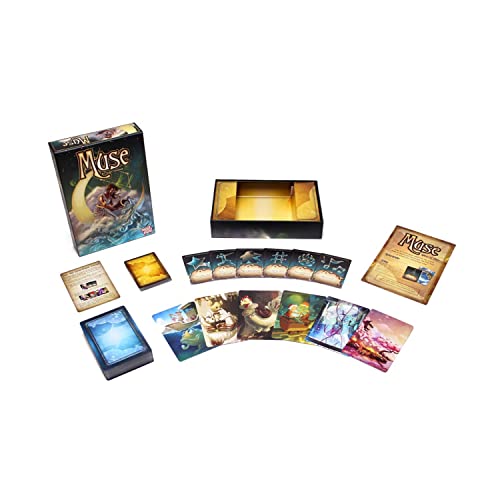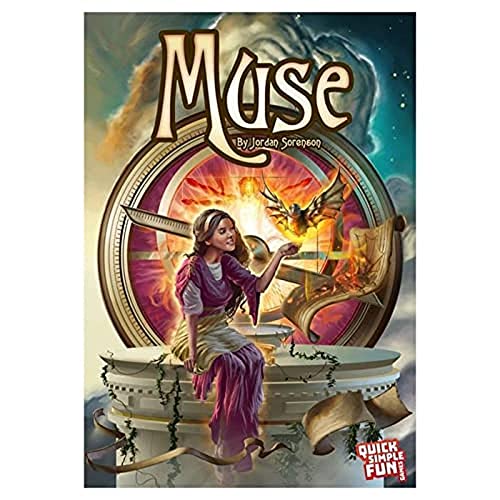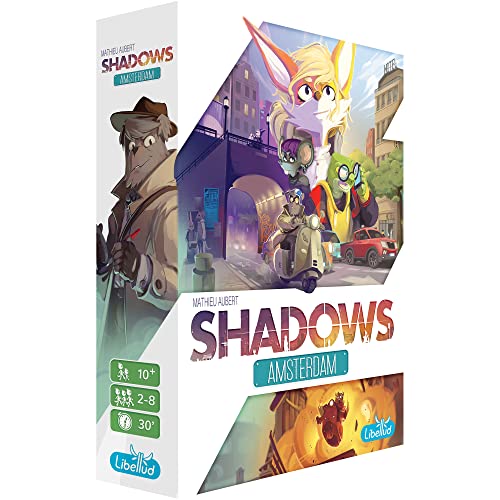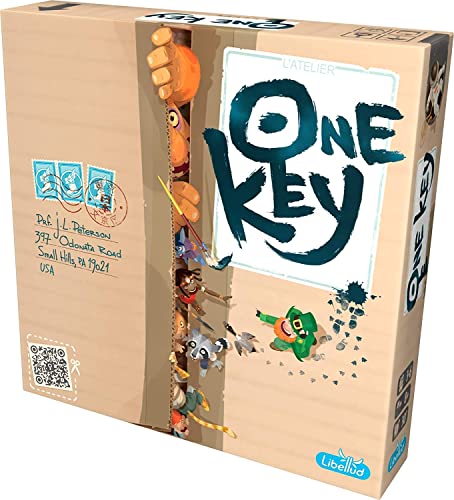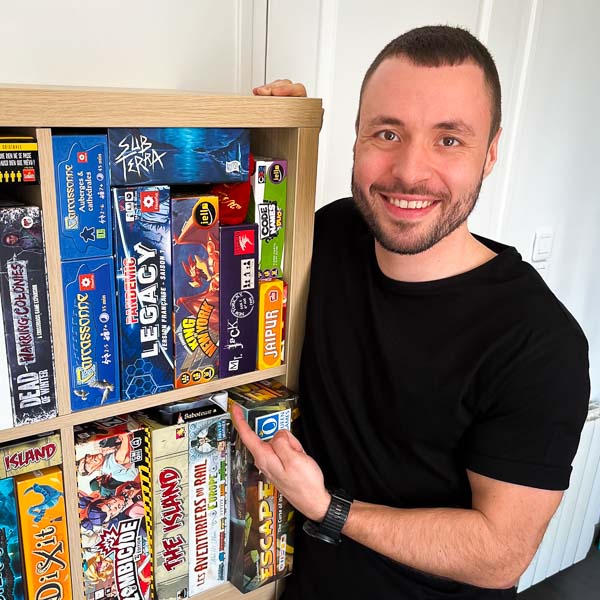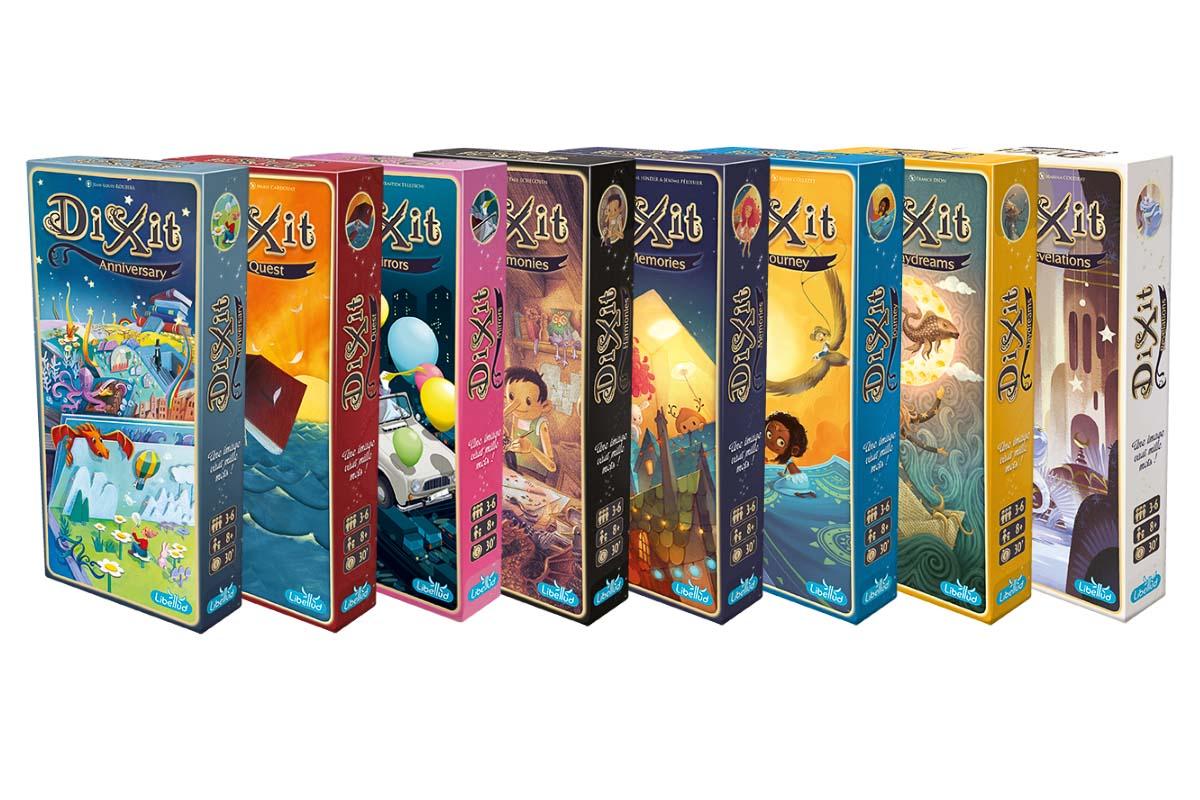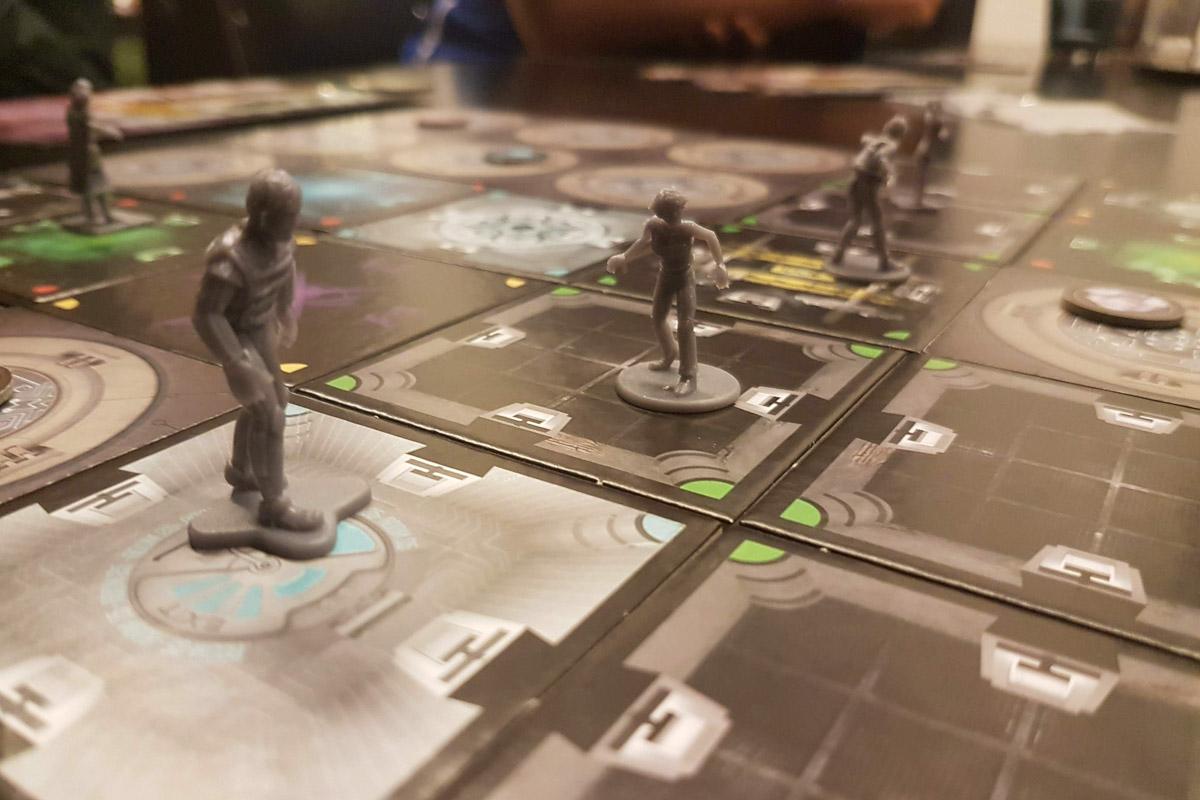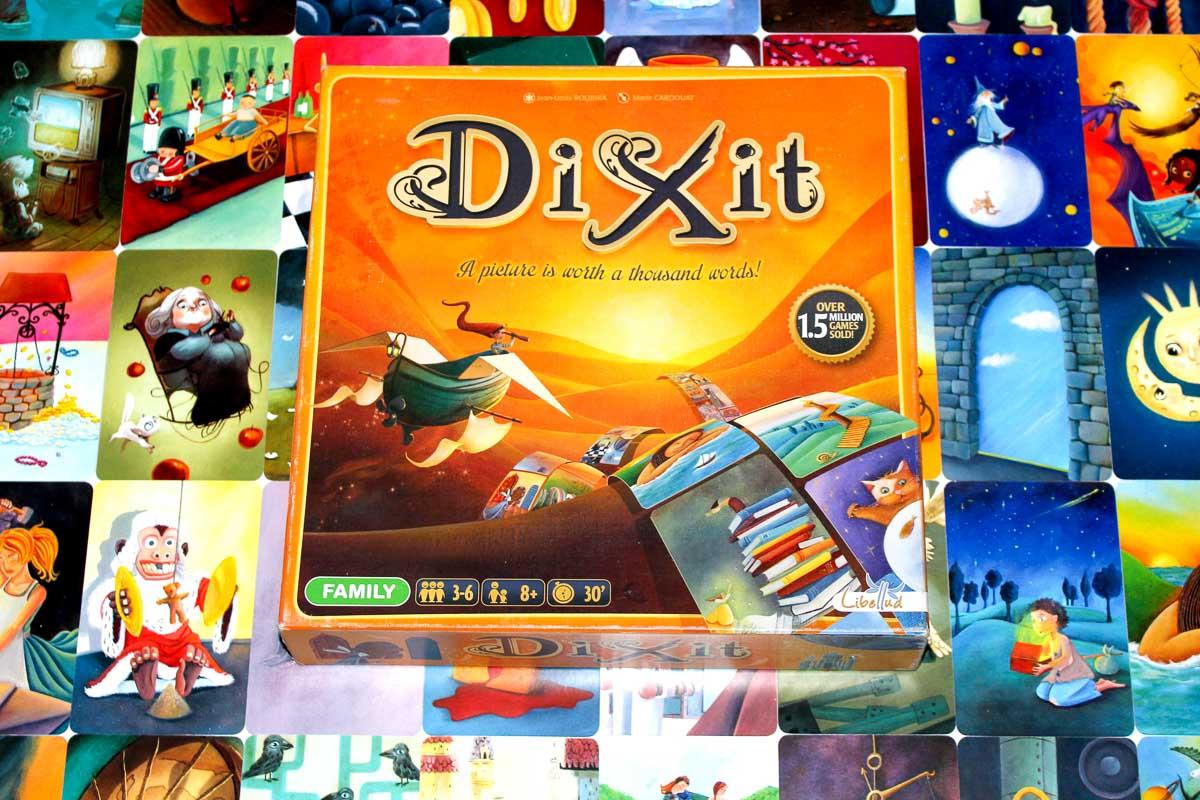The 13 Best Board Games Like Dixit
Do you think Dixit is one of the best games ever?
But maybe you’ve played it a little too much. Or maybe you want to try out other games similar to Dixit.
Well in both cases, you’ll find exactly what you’re looking for here.
I’ve put together for you this list of the 13 best board games like Dixit, so you can pick your next game!
Table of contents
- The Best Games Similar to Dixit – Comparison Table
- Game Reviews – Dixit Similar Games
- What Makes a Game Similar to Dixit?
- Mysterium
- Mysterium Park
- Codenames: Pictures
- Detective Club
- When I Dream
- Obscurio
- Muse
- Muse: Awakenings
- Muse: Renaissance
- Shadows: Amsterdam
- Pluckin’ Pairs
- One Key
- Apples to Apples
- What Is The Best Alternative To Dixit?
The Best Games Similar to Dixit – Comparison Table
Not sure Mysterium is the right pick for you after Dixit?
Then have a look at the 3 suggestions below.
Game Reviews – Dixit Similar Games
Looking for the full list of the very best board games like Dixit?
Then please find below the full selection of 13 Dixit similar games.
🥇Best overall: Mysterium
🥈 Fast Mysterium: Mysterium Park
⚡️ Fastest: Codenames: Pictures
😎 For bluffing: Detective Club
🧠 Most challenging: When I Dream
⚙️ Most complex: Obscurio
🎨 Most creative: Muse
🎨 Most creative: Muse: Awakenings
🎨 Most creative: Muse: Renaissance
⏱ Real-time: Shadows: Amsterdam
👨👩👧👦 Best for kids: Pluckin’ Pairs
🥉 Mysterium for kids: One Key
🎩 The OG: Apples to Apples
You can’t go wrong with any of these if you like Dixit. Now which one you’ll end up choosing will depend on your personal preferences, and on your gaming group!
What Makes a Game Similar to Dixit?
So, how did I make this list? How did I select the games that are the most similar to Dixit, so you can have the same experience when playing them?
Ultimately, I identified 5 main elements that were key to the gameplay of Dixit:
- based on images: images are the heart of Dixit, and most of the gameplay revolves around what the images represent and how to interpret them
- targeted clues: the main game mechanism of Dixit is to give targeted clues to other players, so that some players can find the answer, but not all of them
- supports many players: just like Dixit can be played by 8 players, I looked for games that can be played by a good amount of gamers
- fast-paced: a game of Dixit takes around 30 minutes, so I selected games in that same duration range
- easy to learn: Dixit is so easy to learn, and easy to play, which is the last element I looked for
So there you have them, the 5 key elements that make a game similar to Dixit! If you love Dixit for these reasons, then you’ll definitely love the games below.
Mysterium
The first game on our list is Mysterium, a game so similar to Dixit visually that you could in fact play Dixit with the cards from Mysterium.
If I were asked to describe the game, I would probably say something along the lines of “It’s Dixit meets Clue”. In Mysterium, one player is a ghost that was murdered. Together with the other players, the mediums, you will play as a team to solve the murder: who did it, where, and with which weapon.
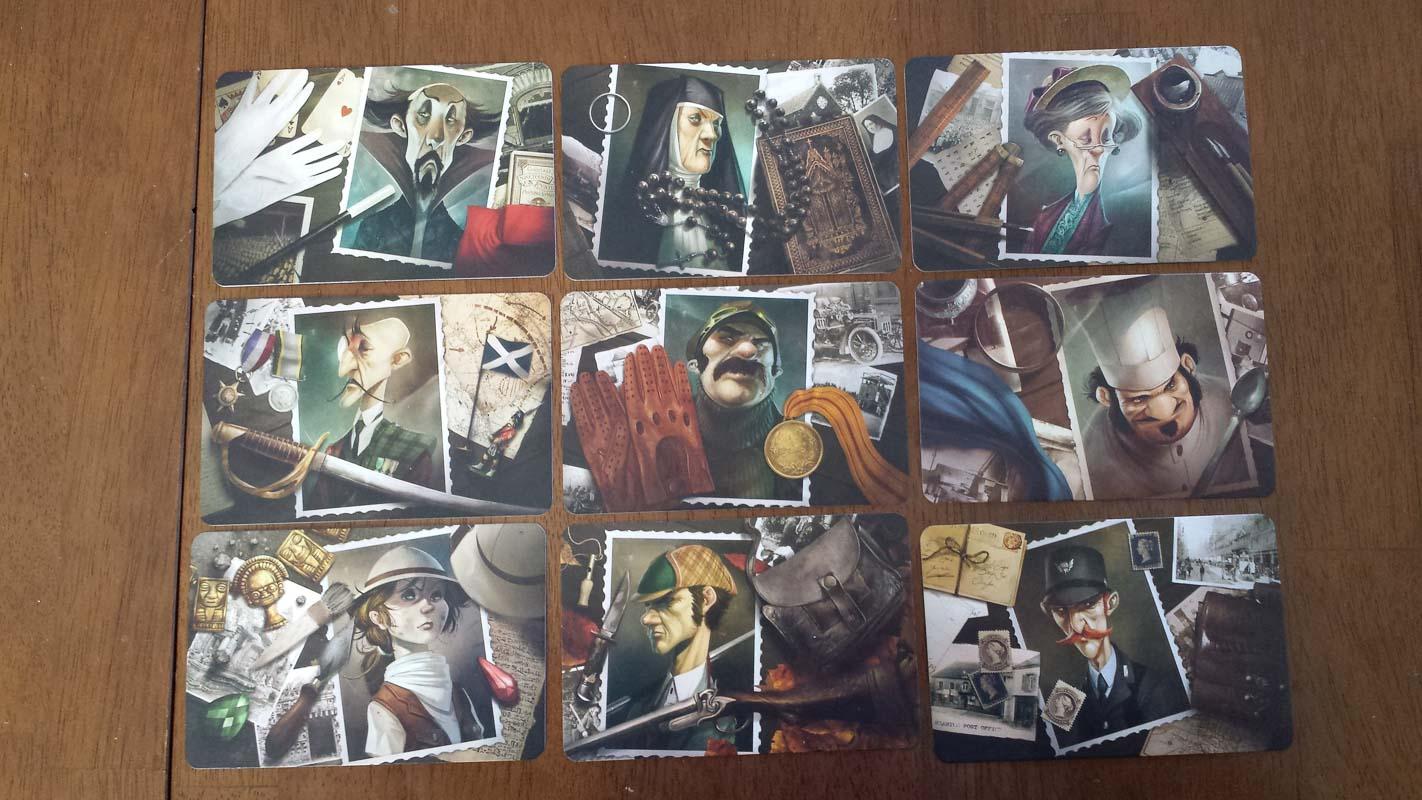
The ghost, who knows all the answers, must help the mediums find the right solution. But the only way to communicate with the mediums is by playing illustrated cards, in the hope that the mediums will interpret them the right way…
It’s definitely on the longer side, compared to Dixit, and there are a bit more rules and set up needed. However the game and gameplay are so identical to Dixit that it’s an absolute must-try for Dixit lovers.
Mysterium Park
If Mysterium sounds fun, but you’re a bit turned off by play time and set up duration, then you should absolutely consider Mysterium Park.
Released in 2020, 5 years after its award-winning first version, Mysterium, Mysterium Park takes exactly the same mechanics and re-implements them in a smaller and faster format.
The main differences with Mysterium are:
- smaller, simplified rules, faster
- carnival theme instead of the haunted house theme
- artwork between cards is very similar, compared to Mysterium where cards have more diversity
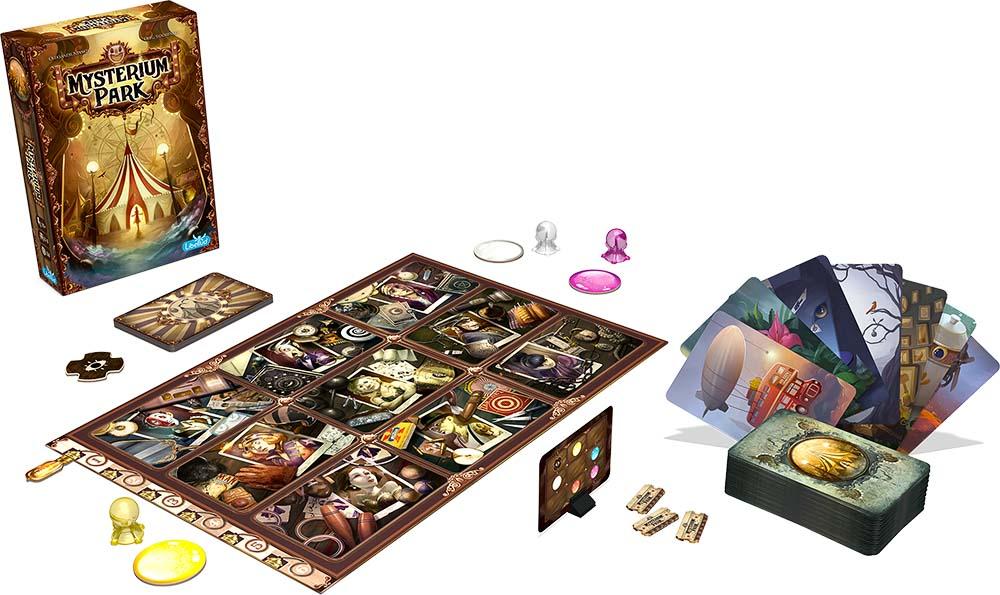
This can be the next step just after Dixit, to start with a slightly more complex game, and if you love it you can then buy Mysterium after.
However if you already have Mysterium, or plan to buy Mysterium, I don’t recommend getting this one.
Codenames: Pictures
Released 1 year after Codenames, Codenames: Pictures is literally the same game, but with images instead of words.
It’s a team game, where 2 rival spies help their respective team be the first to guess 7 images out of a board of 20. But be careful, because if your clues are too vague, your team might guess the wrong word and instantly lose the game!
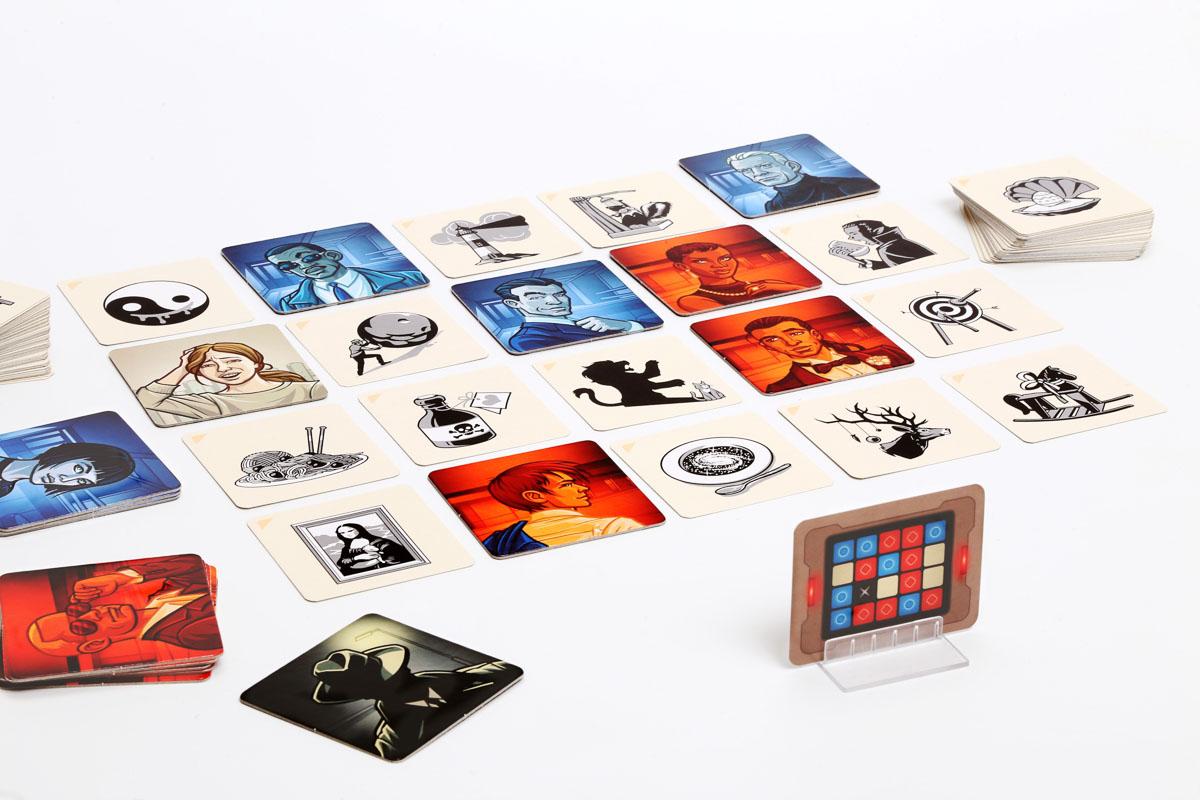
Codenames: Pictures is fast-paced, supports many players, and is easier to play for kids than the original version. Oh and if your gaming group is made of creative folks, they’ll like this version a lot more.
Bonus point: you can play the game using Dixit cards instead of the regular ones, or any cards from the Dixit expansions!
Detective Club
Our next up on the list is a game from the same designer as Mysterium and Mysterium Park, Oleksandr Nevskiy.
It’s thus no surprise that Detective Club is a fun party game, based around the same illustrated cards design.
Each turn, one player picks a secret word, and gives it to everyone except 1 player, the Conspirator. All players then take turns playing 1 card from their hand, then a second card. Once everyone played 2 cards, the secret word is revealed to all, and this is where the fun begins.
Each player now has to justify why they played the cards they played; after everyone gave their explanation, players will vote on who they believe the Conspirator is. The Conspirator gains points if found by 1 player or 0, while the other players score points if they successfully identified the Conspirator.
Detective Club takes the same art & gameplay as Dixit, and turns the game around: everyone knows the answer except one person. It’s a lot of fun trying to come up with a logical explanation of why you played these cards, and to try to bluff away to hide the fact you had absolutely no clue what the word was.
You’ll love this game if you enjoy social deduction, bluffing, and it sparks a lot more discussion than Dixit. And yes, you can play the game with Dixit cards.
When I Dream
Close your eyes, it’s time to drift off in the world of dreams.
In each round of When I Dream, one player is the Dreamer and falls asleep by covering their eyes with a cloth mask. The other players then have 2 minutes to make the Dreamer guess as many words as possible, giving 1-word clues.
But not everyone can be trusted. Some players will be naughty Boogeymen, and their goal is to make the Dreamer guess wrong! And some players will be Sandmen, trying to balance things between good guesses and wrong guesses, thus constantly changing between good clues and bad clues. You’ll find the same dreamy artwork that you loved in Dixit, and the sand timer will spice the game up.
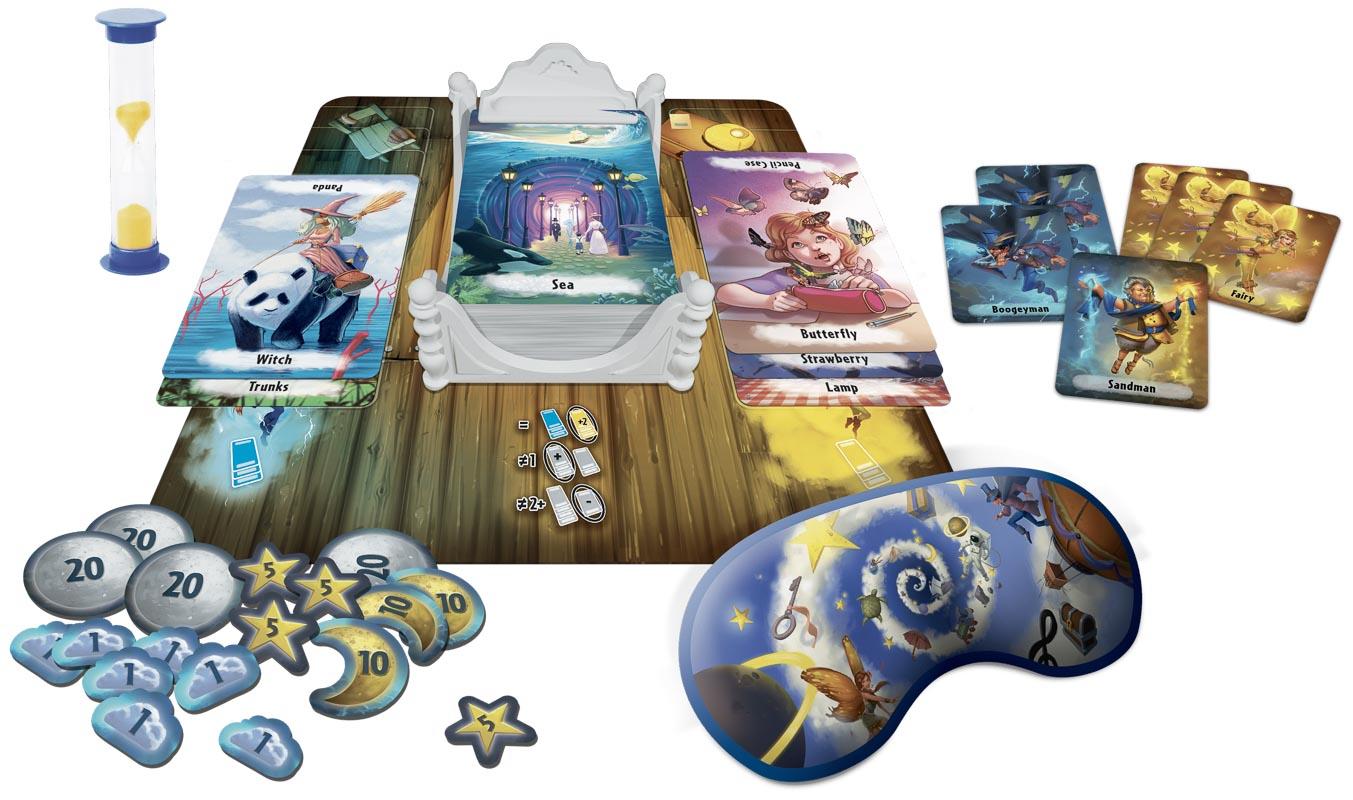
There’s a lot of replayability in the game, thanks to the 4 roles that keep changing. And with more than 400 different words to guess, you can play over and over with a different experience each time.
I was on the fence as to whether to include When I Dream in this list as you’re guessing words, and not images. However the overall experience I had when playing the game was so reminiscent of Dixit that it won me over.
Obscurio
Obscurio is a unique board game, that puts together elements of social deduction, memory and puzzle-solving.
You and your team are trapped in a library, hunted down by an evil Sorcerer. One player will guide the team towards the exit using illustrative cards, hoping the team will interpret the clues the right way.
Sounds hard? But wait, it becomes even harder, as one of the player is in fact a hidden traitor trying to prevent you from escaping!
The unique design of the game rewards communication, cooperation and observation. It’s the gamers version of Dixit, for players up for a more challenging and involved game.
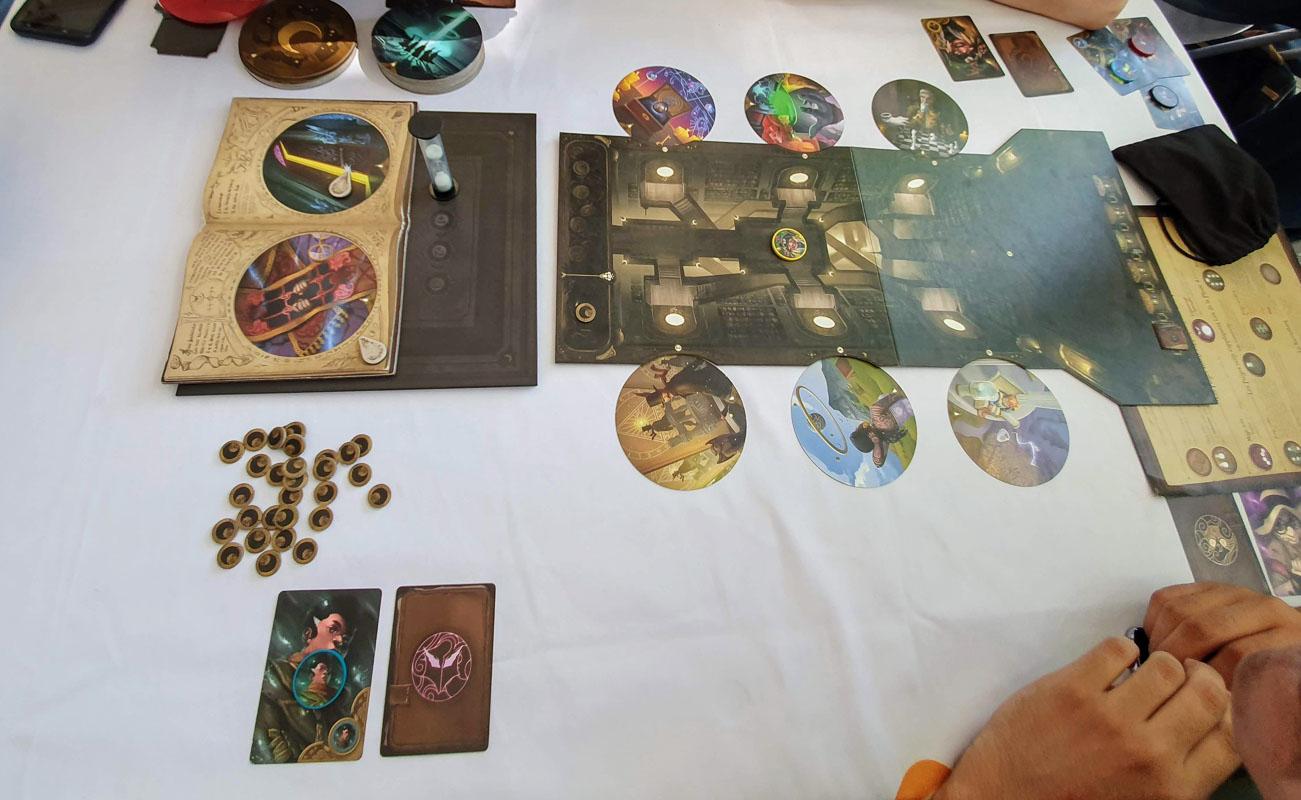
The experience created by Obscurio is really unique, and I truly loved it. However it needs the right group to shine, as it’s very easy for a single player to derail the game if they’re not playing along, or if they don’t fully understand how to play.
Can be a hit-or-miss, but ultimately this will depend on your gaming group.
Muse
In Dixit, the clues you give can be any form: word, sentences, songs, imitations, … However in most of my plays of Dixit, players always end up using words for their clues.
If you’d like to switch things up, Muse is a great option.
Players are divided into teams, and you get to choose which image the other team’s Muse will have to make their team guess. But you also get to choose how they will give their clue, by picking one of 2 inspiration cards. The 30 available inspiration cards force the Muse to give their clue by making a pose, humming a song, naming a movie, an insect, …
This plays best with creative and outgoing people. If your friends are not the type to suddenly sing a song or strike a pose, the game may feel embarrassing for them.
With 84 masterpiece cards to guess, and 30 inspiration cards that define how to give the clue, the game can feel repetitive after a while. But if you love the game and want to keep playing, there are already 2 great expansions out to expand the fun!
Each of the 2 expansions below can also be played as a stand-alone game.
Muse: Awakenings
Muse: Renaissance
Shadows: Amsterdam
You like Dixit, but you feel like there’s too much downtime waiting for other players to pick which card to play?
Well, then you’ll love Shadows: Amsterdam!
It’s a real-time racing game, where 2 teams compete to be the first to guess 3 locations on a modular board representing the city of Amsterdam.
The Intelligence Officer will give clues to the team, using hexes covered by beautiful artwork, trying to make them guess correctly 3 locations, before the other team. But if they guess wrong 3 times, you lose the game!
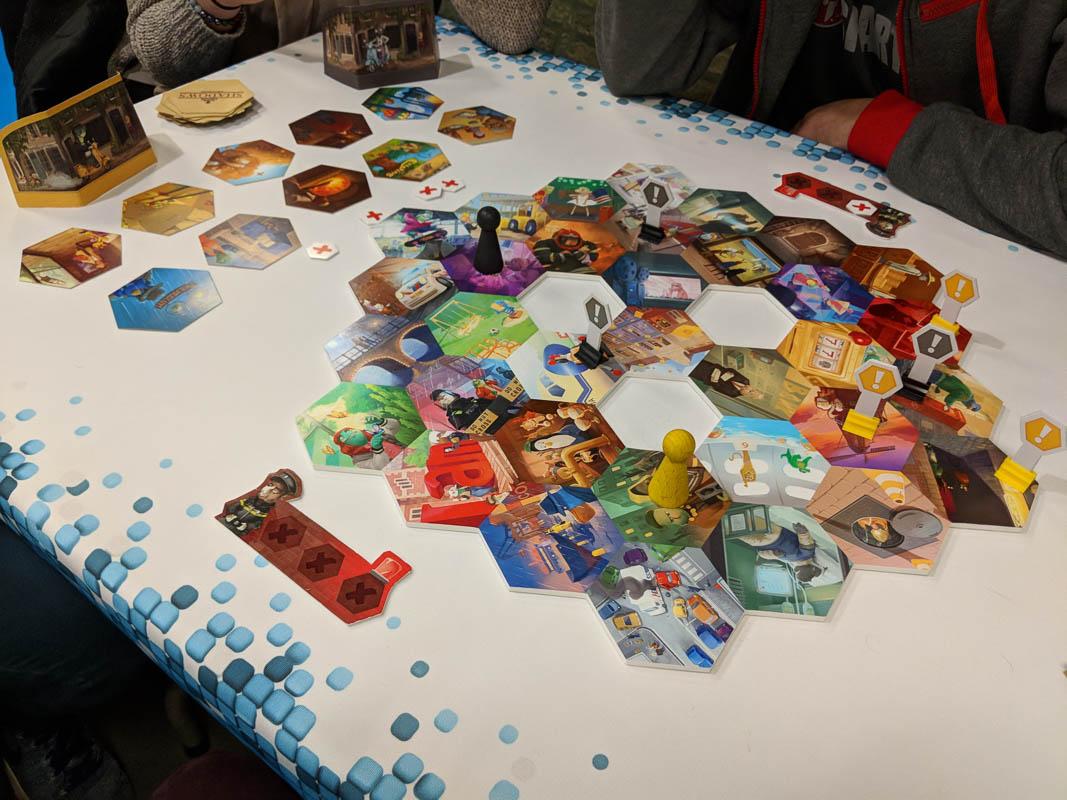
I love the real-time element of the game, where everyone plays at the same time, and you constantly giving out clues and watching your team trying to guess. It creates a tense experience, where creativity and subtle thinking matters a lot less than in Dixit.
Replayability is pretty high, thanks to the modular double-sided board, the 40 different map cards that changes the locations to guess, and the changing roles between clue giver and detectives.
Pluckin’ Pairs
Next up on the list is a game so simple to play that it’s a great pick for kids.
Each turn, 11 images are put on the table. All players secretly pair the images, and write their pairs on their own scoresheet. Once everyone is done, you compare your pairs with other players pairs. You get 1 point for each similar pair, but you get 0 point if the same pair was done by everyone – or by no one.
Pluckin’ Pairs is a great game that plays a lot like Dixit, without the need to think of a clue. This makes it more accessible for non-creative, and for kids.
It also removes a bit of the interaction, as the room feels silent while everyone is making their pairs. But the discussion start again as soon as you start comparing pairs, and makes for funny stories.
One Key
Ever since publishing Dixit, Libellud has been on a roll with similar games. One Key, the 5th Libellud game on this list, is a must-try for anyone that likes Dixit.
It’s a fully cooperative game, where one person gives clues to the team who needs to eliminate cards among a set of 11, until they only have the good one remaining. Clues are given by playing illustrated cards, and indicating their degree of similarity to the answer: strong, medium or weak.
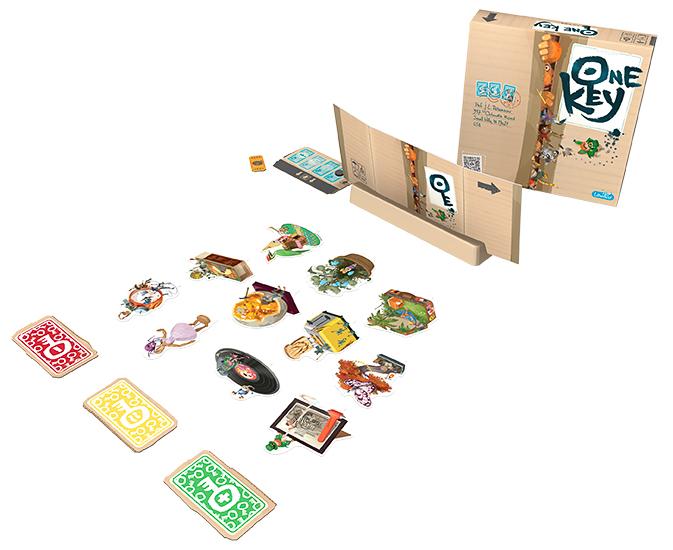
The game is played with the aid of a companion mobile app, which starts a 3 minute timer and background music to add tension at the end.
Overall I must say this is the game that I like the less out of the other Libellud games listed above (Dixit, Mysterium, Mysterium Park, Obscurio and Shadows: Amsterdam), probably because it’s designed for kids. The artwork is more limiting, and there aren’t enough cards to keep things interesting over time.
However it does play really fast, it’s easy to play, and makes for interesting conversations. For such a low price, it’s a good addition to your collection if you’re looking to expand your Dixit like games. And you’ll also be able to play it with Dixit cards (though without the app), which increases the replayability.
Apples to Apples
And finally, the last on our list of fun board games like Dixit: Apples to Apples.
It’s literally the OG of card-matching games, released in 1999. The amount of cards games based on the same mechanics that have flooded the board game markets in recent years is largely attributable to Apples to Apples.
It’s pretty much the same gameplay as Cards Against Humanity: each turn, a new player becomes the Judge and plays a green card, then everyone else plays a red card that they think is a good match. The Judge then picks their favorite, who gains a point. Change the Judge, rinse & repeat.
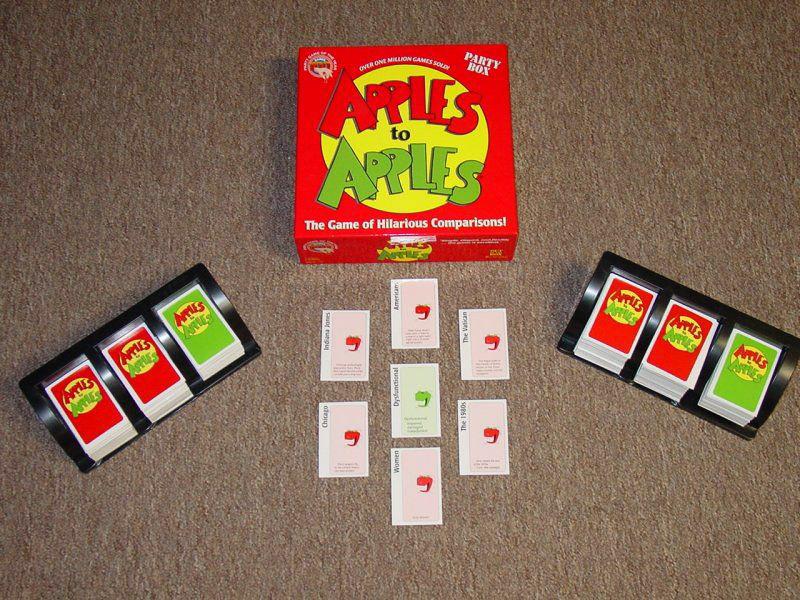
While the game does not revolve around pretty illustrative cards, I had to pay reference to the OG of the genre. You’ll still find the same experience as Dixit, with conversations at the end of each round, and it’s a fun game overall.
This would be the last game I would pick to play on this list, but it’s fast, fun, supports a lot of players, and can be played by kids alone.
What Is The Best Alternative To Dixit?
The best alternative to Dixit is Mysterium. It has the same gameplay, based on illustrated cards and giving clues, but you’re playing together as a team to solve a murder.





